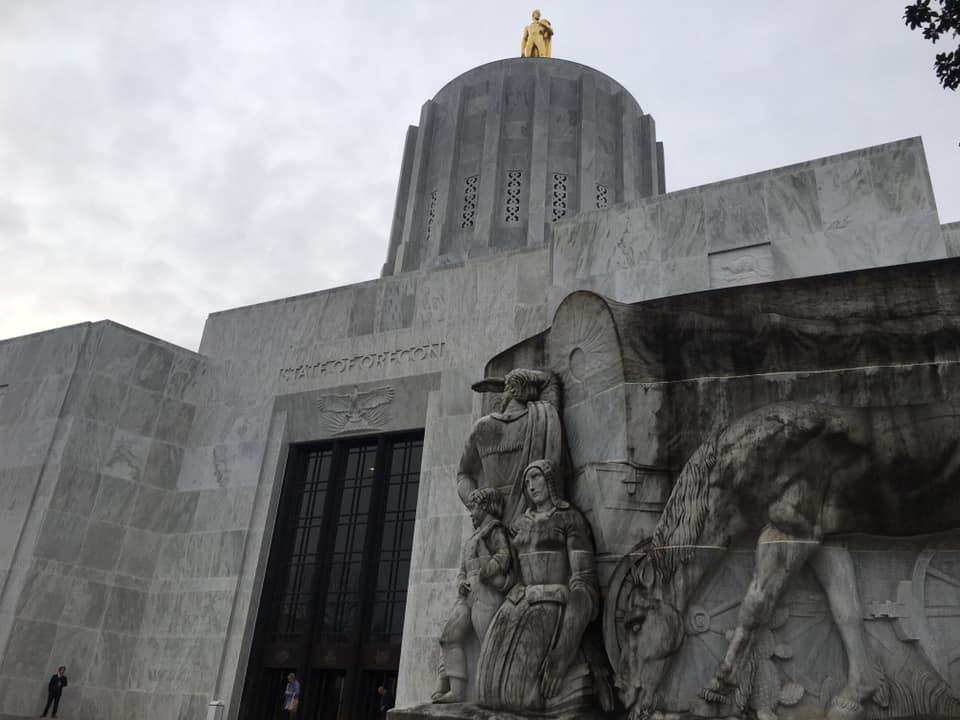People in Oregon are lucky – we have a plethora of different kinds of mental health care to turn to when we want help managing our well-being. Prefer a PsyD? LCSW? LPC/LMFT? No worries, got lots of those. Prefer a Life Coach? Got that. Prefer Hakomi? Lots of those in Oregon! Core Energetics? Internal Family Systems? Voice Dialog? Pathwork Helpers? Process Work Diplomates? Check, we have all of those. I recently made a list of 19 different alternative well-being perspectives that are practiced in Oregon. Nineteen, and I bet I overlooked a few. These 19 perspectives cover an incredibly wide range of depth, focus, and style.
One of the reasons Oregon is blessed with such a wide range of alternative well-being care is because the state has chosen to continue to support alternative therapies for Oregonians outside of the state-licensed therapies that are regulated by the state (e.g. PsyD., LCSW, LPC/LMFT, etc.) HB2493 states this beautifully in its introductory clauses:
“Whereas unlicensed alternative therapy practitioners of diverse specialties and certifications have been serving Oregonians to encourage greater well-being for many decades, even prior to the creation of state licensure for licensed professional counselors and other licensed mental health care providers; and…”
“ …Whereas unlicensed alternative therapy practitioners working in Oregon provide valuable services to Oregonians and are an essential part of the mental health workforce in this state;”
HB2493 makes it clear that the non-licensed alternative therapies are an essential part of the mental health workforce, acknowledged and supported by the state.
HB2493 takes that support further by defining consumer protections for Oregonians who seek non-licensed alternative therapies. HB2493 starts by defining a voluntary registry for alternative therapists that they can choose to join. Joining is voluntary – alternative practitioners aren’t required to join in order to continue their practice. Members who join the registry contribute to consumer protection by informing consumers about their alternative modalities and about their level of training and experience. This “professional disclosure” information is meant to help clients make well-informed decisions when seeking alternative therapies and helps toward informing the public about their options for well-being and therapy services. Like other professions, registry members have a defined code of ethics and professional conduct to adhere to. And like other professions, a complaint, investigation, and discipline process is defined for those rare cases where that code might be violated.
In order to accommodate the wide range of alternative therapies, the registry doesn’t define coursework or certifications for alternative practitioners – those processes are left up to the alternative therapies, each of which is unique in their training and certification requirements. A small exception to this is regarding mandatory reporting in Oregon, which is one of the few unifying requirements for all of the alternative therapies. The registry office will provide a tutorial and exam on Oregon’s mandatory reporting laws for those who join the registry.
It could be argued that most (if not all) alternative therapists practicing in Oregon already meet the spirit of the consumer protection requirements defined in the alternative practitioner registry. The practitioners who do this work are drawn to it by a spirit of goodwill and a wish to do something good in the world – which includes practicing ethically. HB2493 builds on that goodwill by clearly defining a process for ethical practice, consumer education, and consumer protection; it codifies and defines that goodwill. Those alternative therapists who voluntarily join the registry will have the benefit of affiliation with the registry – something to reference and point to that defines their place in Oregon’s well-being services industry. There’s been confusion in the past about what an alternative therapist is and isn’t, and the registry will go a long way toward clearing up confusion.
I see a lot to like about HB2493 for the consumer public and for alternative well-being practitioners. I was a member of the 2020 workgroup that created the proposal that became HB2493 and had the opportunity to examine the issues from different perspectives. Our workgroup brought together stakeholders from a range of backgrounds: alternative practitioners, state licensed therapists, non-profit agencies, legislators, investigators, government agencies,… it was a diverse team with diverse opinions. We examined and debated the issues and developed a proposal that I believe will serve the consumer public and alternative well-being practitioners well. As an alternative therapist, I’ve been involved since 2008 in matters related to alternative practice in Oregon and I’m excited to finally see this proposal in the legislature.

If you’re interested in this matter, I encourage you to read HB2493. It’s not very complex and I found the introductory intent clauses heartwarming and encouraging. You can find the Oregon Legislature web page for HB2493 here – https://olis.oregonlegislature.gov/liz/2021R1/Downloads/MeasureDocument/HB2493
